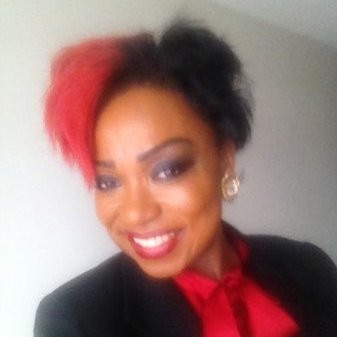Celine Clemence
Founder AFFAMIR | Feminist & Social Engineer | Menstrual Justice Advocate | Menstrual Health Educator | Writer
Burkina Faso, Africa
I have observed that many women around me here in Africa suffer from cancer and fibrome. And this is not just the people I know. When I talk with women in the framework of the activities of my NGO (www.affamir.com), many of them talk about relatives or friends suffering from cancer and fibrome.
In December 2017, me too had to undergo a surgery to remove seven big fibromes I had in my uterus and that were ruining my life. A part from this, there is this very critical issue of period poverty that is still negatively affecting millions of women and girls in Cameroon, my country, and which has severe and horrible consequences on their lives, especially that of the most vulnerable ones: women in prison who spend the whole day with one pad when they succeed to have pads because our prisons don’t provide menstrual pads to women in prison; internally displaced women and girls, students, etc.
Lack of menstrual supplies, poor menstrual management is seriously and negatively affecting women and girls’ health around me here in Cameroon and something must be done especially in rural areas where people are very poor and cannot afford menstrual supplies.
Today I talked to a group of girls who became pregnant because some of them had sleep with men for menstrual pads because they couldn’t afford this essential product, and others didn’t and still don’t know how their menstrual cycle works. They dropped out of school and now have to look after their babies and face the stigmatisation and the anger of their families. One of them was even forced to marry the young boy that impregnated her. Adolescents having babies too early, women suffering more and more from cancer and fibromes, these are some of the issues that are seriously affecting the health of African women.
We need to create a better world for women and girls who menstruate so they can bleed safely, confidently, with serenity and dignity because conditions are met for them to do so. Menstrual equity must be a reality for all menstruators because we cannot continue allowing period poverty to ruin the lives of menstruators and prevent the development of their families, communities and countries.
All the adolescents who are to have their first period must be prepared and equipped with the tools they need to effectively and safely manage their period. We have gone to the moon and back and yet we are unable to help women and girls who menstruate get menstrual supplies and the information they need to know their bodies, understand puberty and menstrual cycle, and effectively and safely manage this natural and monthly fluid.
We must change this ugly panorama and I believe we can if we care enough. The other challenge is to democratize the access to information about health to women by using as many channels, tools and supports as possible, and also facilitate annual medical check-up. Most women who suffer from cancer get to know about it when it is already too late. They don’t do this important annual medical check-up because they can’t afford it, or because they don’t really know its importance.
I believe in the power of a strong and strategic partnership and collaboration to successfully address these challenges. Partnership that will allow partners to learn, explore, connect, support, empower each other and join forces and intelligences to tackle these serious issues.
After all, we all deserve to learn about our bodies (and brain and everything else) so we can be well from the inside out and be the best version we can be, live the life we deserve and desire and actively and effectively help a better world for us all.

